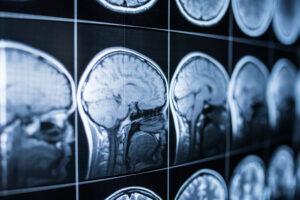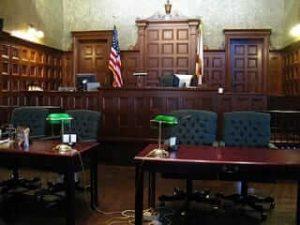
An individual may sustain a brain injury in a car crash, pedestrian accident, bicycle accident, slip and fall accident, work accident, or a number of other types of accidents.
Many brain injuries occur when the head is exposed to a sudden, violent force, and the brain strikes the inside of the skull. Penetrating injuries, such as those sustained in a serious motor vehicle accident, can also lead to significant brain injuries.
Many individuals who suffer a brain injury deal with painful, debilitating symptoms. If you were in an accident that caused you to suffer a brain injury, a personal injury lawyer can explain your options for seeking compensation.
Fall Accidents Cause Almost Half of All Brain Injuries
The Centers for Disease Control and Prevention (CDC) reports that almost half of all brain injuries requiring hospitalization occur during falls. Elderly individuals are at an especially high risk of brain injuries from falls.
When an individual slips on a slippery surface, trips over a hole in the pavement, or otherwise loses their balance and falls, they may strike their head on the ground with enough force that causes the brain to move within the skull. Their brain can become damaged and bruised by striking the inside of the skull.
For a free legal consultation, call 800-537-8185
Other Types of Accidents that Can Lead to Brain Injuries
A significant percentage of brain injuries are caused by motor vehicle accidents, according to the CDC. Being involved in a car crash puts great force on the occupant’s body. Closed brain injuries are often triggered when a sudden deceleration or acceleration causes the brain to hit the skull with enough force to damage the brain tissue.
Penetrating brain injuries occur when a shard of metal, glass, or another object penetrates the skull and directly pierces the brain during a crash. These brain injuries are often catastrophic, if not fatal.
Other causes of brain injuries can include:
Motorcycle Accidents
Motorcyclists are at an increased risk of severe and fatal head injuries during a crash – especially if they are not wearing a helmet. A study conducted by the National Highway Traffic Safety Administration (NHTSA) found that 15% of injured motorcyclists who were wearing a helmet during the crash sustained brain injuries, while 21% of those who were not wearing a helmet suffered a brain injury.
Wearing a helmet can reduce the chances of severe brain injuries. However, the most cautious motorcyclist cannot completely eliminate the risk of brain injury in a collision.
Bicycle Accidents
Riding a bicycle can also put an individual at significant risk of brain injury in an accident. Wearing a helmet reduces the chances of suffering a brain injury, but helmets do not offer complete protection against injuries to the brain. Bicyclists can suffer a brain injury when struck by a motor vehicle or if they crash into an object.
Pedestrian Accidents
Being struck by a vehicle often knocks a pedestrian to the ground, striking their head on the pavement. Severe brain injuries are common in pedestrian accidents, and many victims require extensive medical treatment and rehabilitative therapy.
Commercial Truck Accidents
18-wheelers and other types of commercial trucks are massive compared to the average vehicle. Consequently, injuries resulting from a commercial truck accident are often critical.
Moderate and severe brain injuries are not uncommon in commercial truck accidents. Some truck accident victims can walk away from the crash with a mild concussion that only causes minor discomfort. Others suffer brain damage that permanently reduces their quality of life. Sadly, many brain injuries caused by commercial truck accidents are fatal.
Work Accidents Are a Common Cause of Brain Injuries
Workers in any industry can sustain a brain injury, but certain industries put workers at a greater risk of closed brain and penetrating brain injuries than others. Construction workers are at a high risk of on-the-job brain injuries. However, office workers, factory workers, retail workers, and workers in any other industry may also suffer a brain injury while at work.
Work-related brain injuries may occur due to:
- Falls from a great height, such as from scaffolding
- Slip-and-fall and trip-and-fall accidents caused by loose floor rugs, spilled liquids, poor lighting, wobbly handrails, parking lot defects, and other hazards
- Struck-by accidents involving a falling object
- Equipment malfunction
Click to contact our personal injury lawyers today
Symptoms of Brain Injuries Caused in an Accident
Brain injuries vary in severity. Somebody with a mild concussion may not even realize that they suffered a concussion. They may only think that they have a headache. Other brain injuries lead to severe brain damage that prevents a person from working, communicating, or living an independent life.
Brain injuries can lead to painful and debilitating symptoms such as:
- Headaches
- Nausea and vomiting
- Tremors or seizures
- Loss of bowel and bladder control
- Sensitivity to noise and light
- Blurry vision
- Tiredness
- Dizziness and difficulty balancing
- Difficulty sleeping or sleeping too much
- Ringing in ears
- Mood swings
- Difficulty remembering things
- Confusion
- Reduced problem-solving ability
- Reduced ability to speak and understand others
- Depression and anxiety
Prognosis for Brain Injury Sufferers
Brain injury sufferers may require significant medical intervention, including hospitalization, rehabilitative care, surgery, nursing home care, or in-home care. Individuals with mild to moderate brain injuries may eventually fully recover from their injury. However, some individuals who sustain a brain injury never regain full functionality and relief from symptoms.
Financial Compensation for Brain Injury Victims
People who suffer brain injuries in an accident may file a personal injury case or workers’ compensation claim and recover financial compensation. Depending on the situation, an individual may be entitled to compensation for lost income during recovery. This may include lost earning capacity, medical bills, and compensation for the non-financial harm caused by the brain injury.
Speak With a Personal Injury Lawyer to Discuss Your Options After Suffering a Brain Injury
If you or a loved one suffered a brain injury in an accident, you may be entitled to financial compensation for expenses such as lost income, hospital bills, rehabilitative care, and more. You may also be entitled to compensation for your pain and suffering, emotional distress, and other non-financial damages.
The personal injury lawyers at the Morris Bart law firm represent brain injury victims in personal injury cases and workers’ compensation cases. We can help you fight for the compensation you deserve. Call us today for a free consultation.
Questions?Call 800-537-8185
to find a Morris Bart office near you.





